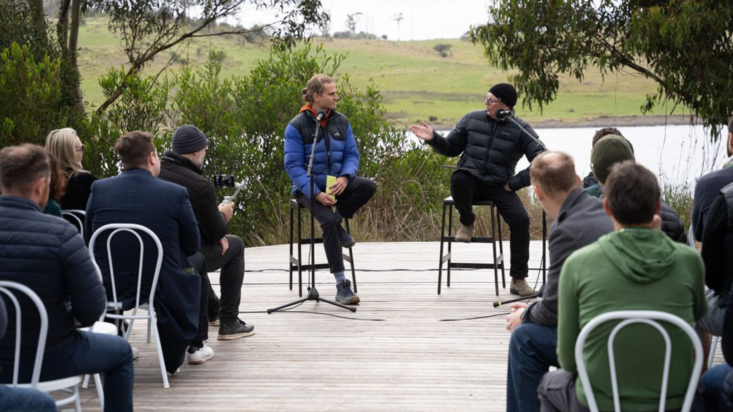Capital flows matter: How ESG can avoid becoming an echo chamber
Among the strongest messages from the The Inside Network’s inaugural ESG Retreat in Tasmania was the incredible power of financial advisers who educate and advocate for change, as well as the importance of capital flows in being part of the solution.
Speaking with delegates and members of the advisory committee for the ESG Retreat, we were regularly warned of contributing to an ‘echo chamber’ that is occurring in the sector. Most ESG events attract a similar group of people talking about a similar range of issues, which does little to broaden the message throughout the industry.
This was a challenge I personally embraced, along with our team, in shaping the agenda for an event that included more than 20 speakers from a cross section of the economy, and welcomed delegates from both the institutional and financial advisory sectors.
The combination offered rare perspective and an understanding of the ‘other side’ of the industry. While the pension fund sector may well be further progressed and better resourced when it comes to reporting on ESG factors and making meaningful capital allocations, financial advisers are one of the few professions that sit at the coal face, speaking daily with clients, identifying and allaying fears and concerns.
In a sector where scale is seemingly all that matters, bringing the message back to the consumer is particularly relevant.
Among the many messages from the conference was that highlighted by MONA’s executive chef, Vincent Trimm, when discussing the evolution of his own approach to food production and wastage. Five years ago, Trimm explained, there was little hope of implementing any action to create greater sustainability, but in recent years this has actually become a priority.
Trimm said his team is now full of people who are more concerned about sustainability issues, and are motivated and willing to embrace the need for change.
A similar theme was felt across the event, which attracted a decidedly younger crowd of emerging leaders across the financial advice and investment industry. With a diverse range of experience, many were simply seeking to empower and educate themselves to make changes in their own businesses towards a more sustainable approach.
This is a trend that is being seen across politics and in many cases the corporate sector, a fact reiterated by Natalie Kyriacou of PWC. Young people are demanding change to long-held practices while many of the older generations continue to avoid difficult conversations at risk of offending.
It wasn’t clear to me before the event, but it certainly is now; ESG isn’t going to disappear.
These considerations should and must form part of every portfolio and investment decision at some point in the future. Whether from the context of identifying significant risks to profitability, or simply offering comfort to clients that their capital is being used to fund good rather than bad businesses, every investment decision maker must be aware.
Historically, many advisers have relied upon the relative complexity of ethical investing or transparency and time constraints to avoid difficult conversations, leaving it up to clients to ask. What was clear during the event, is that it is time for advisers to ‘show’ clients what they could be doing.
Advisers need to be arming themselves with the information and confidence to have challenging conversations with clients on ESG and ethical investment matters or risk an opportunity to build closer more meaningful relationships with their clients.
As both Paul Oosting of Future Super and Rachel Etherington of LGT Crestone explained, capital flows matter and small changes can be immense.











